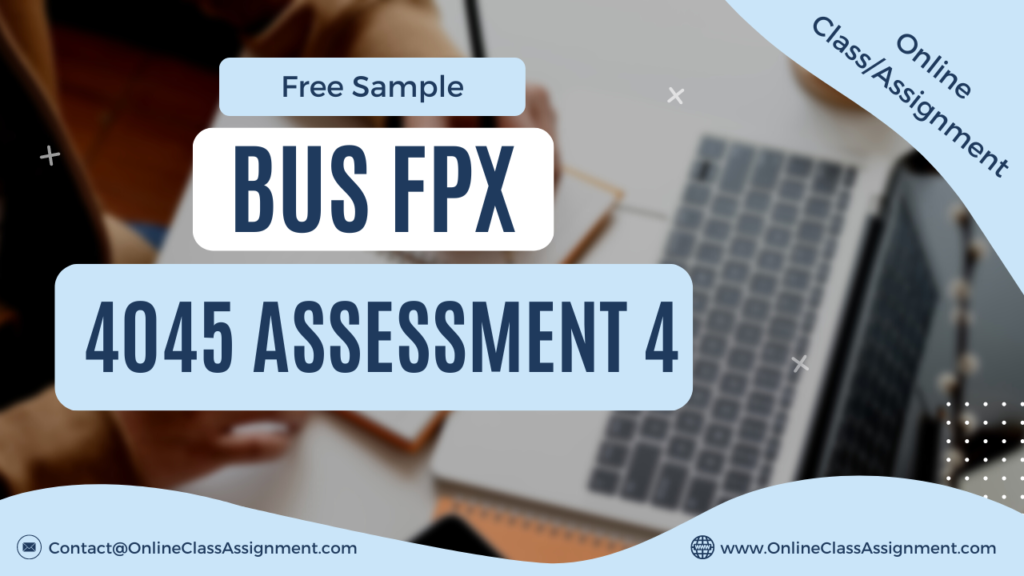
BUS FPX 4045 Assessment 4 Developing an Interview Plan
Student Name
Capella University
BUS-FPX4045 Recruiting, Retention, and Development
Prof. Name
Date
Structured vs. Unstructured Interviewing
In the domain of interview processes, the degree of structure, organization, and planning applied significantly impacts the evaluation process. Therefore, a structured interview approach is preferred in this context. This section offers an overview of both structured and unstructured interview methodologies, followed by a rationale for selecting a structured format.
Structured interviewing is a well-known format characterized by formality, focused discussions on required skills, prepared questions, and feedback from candidates regarding their alignment with the company’s needs. By conducting thorough analysis, a set of questions with a rating scale is developed, facilitating an objective comparison among candidates based on their responses. Adherence to a standardized process ensures fairness and consistency across interviews, thereby increasing the likelihood of identifying the most suitable candidate for the company’s requirements. Structured interviews enable interviewers to maintain focus, gather necessary details, and make informed decisions systematically.
Conversely, unstructured interviews often resemble casual conversations, lacking predefined questions. While relying on information from the candidate’s application and resume, these interviews lack a clear plan, potentially resulting in chaotic interactions. Such informality can compromise evaluations, leaving decisions susceptible to biases or misinterpretations. Moreover, the absence of a structured approach may pose legal risks, particularly concerning compliance with regulations. The open-ended nature of unstructured interviews may inadvertently elicit sensitive information, challenging the defensibility of hiring decisions. Thus, adhering to a set list of prepared questions is emphasized to mitigate potential legal and fairness concerns.
Council (2019) expounds on the benefits of structured interviews, advocating for fairness, consistency, and informed decision-making. This aligns with the imperative to uphold a structured approach to interviewing, ensuring equity and legality throughout the process.
Interview Question Styles
Effective interviewing involves utilizing diverse question styles, including behavioral, situational, and competency-based inquiries, to gain comprehensive insights into candidates. Behavioral questions prompt candidates to recount specific experiences, shedding light on their skills and problem-solving capabilities based on past scenarios. Situational questions, similar to behavioral queries, present hypothetical scenarios, assessing candidates’ analytical and decision-making skills. Competency-based questions delve into candidates’ knowledge and aptitude, facilitating a nuanced assessment of their suitability for the role.
Employing a variety of question styles during interviews enables a holistic evaluation of candidates, covering various facets ranging from qualifications to personality traits. Consistency in questioning is crucial to ensure fairness and enable objective comparison among candidates. Standardizing the interview process fosters a level playing field, enhancing the reliability and validity of hiring decisions.
Avoiding Illegal Questions During the Interview Process
Certain questions are considered illegal during interviews due to their potential infringement upon candidates’ rights. Inquiries related to race, religion, disability, marital status, gender, and health are strictly prohibited to prevent discrimination and legal ramifications. Adhering to a structured interview process with predefined questions is pivotal in avoiding inadvertent breaches of legality. In cases of candidate oversharing, maintaining focus on predetermined topics and refraining from pursuing personal details is imperative to safeguard against legal implications.
Deviation from legal interview practices can lead to severe repercussions, including regulatory investigations, discrimination lawsuits, and reputational damage. By adhering to structured interview protocols, companies can mitigate legal risks, ensure fairness, and make well-informed hiring decisions.
Beasley (2022) elucidates common illegal interview questions and strategies to circumvent them, underscoring the importance of legal compliance in the hiring process.
References
Beasley, C. (2022, December 27). Common illegal interview questions & how to avoid them. Fit Small Business. https://fitsmallbusiness.com/illegal-interview-questions/
Council, Y. E. (2019, July 19). Council post: Structured versus unstructured interviews. Forbes. https://www.forbes.com/sites/theyec/2019/07/19/structured-versus-unstructured-interviews/?sh=1d9964e64780
BUS FPX 4045 Assessment 4 Developing an Interview Plan
Simpson, M. (2022, June 6). Top 50 situational interview questions and answers (examples included). The Interview Guys – Job Interview Prep, Interview Questions & Career Advice. https://theinterviewguys.com/situational-interview-questions-and-answers-examples-included/
Walder, K. (n.d.). How to answer competency-based interview questions. Monster.com. https://www.monster.com/career-advice/interviewing/interview-questions/competency-based-interview-questions
Zhang, L. (2023, April 13). Your Ultimate Guide to Behavioral Interview questions. The Muse. https://www.themuse.com/advice/behavioral-interview-questions-answers-examples-g-candidates/
BUS FPX 4045 Assessment 4 Developing an Interview Plan
Get Capella University Free Business Samples
BUS FPX 3007
BUS FPX 3011
BUS FPX 3021
BUS FPX 3022
BUS FPX 3030
BUS FPX 3040
BUS FPX 3050
BUS FPX 4012
